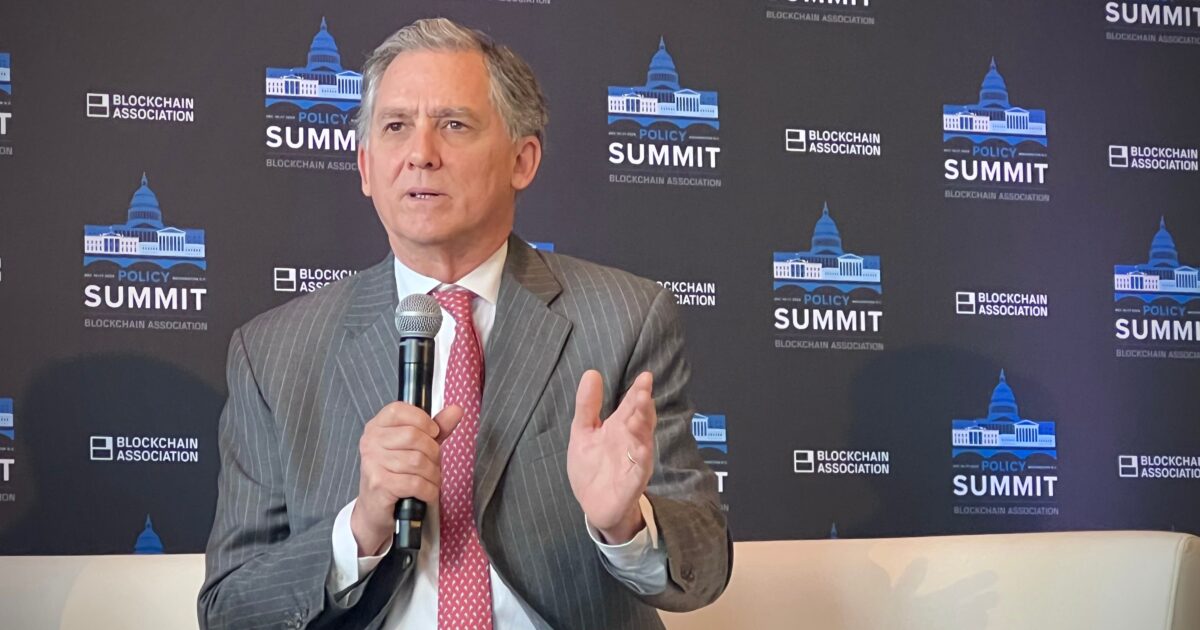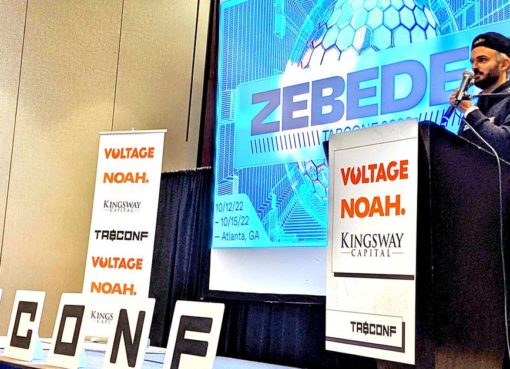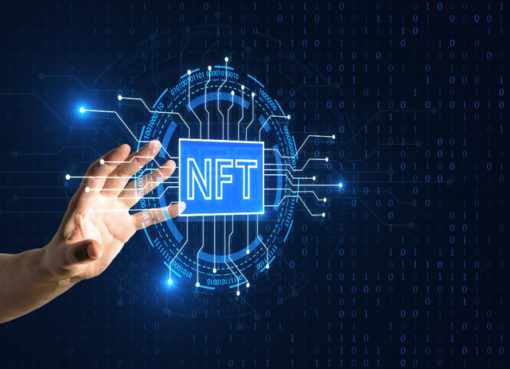President Donald Trump called for a quick House of Representatives passage of the stablecoin-oversight bill the U.S. Senate approved recently, but one of the key lawmakers in that effort suggested on Monday that there are details that still need to be worked out.
Representative French Hill, the chairman of the House Financial Services Committee that’s acted as the primary stage of stablecoin debate for years in Congress, was unwilling to commit to the president’s request that House lawmakers keep their pencils away from the Senate’s work. Instead, he said that talks are underway with the leadership and that there are a number of issues that could be ironed out between the Senate’s approved bill and the House version that’s still in-process.
Trump was clear on his preference last week:
“The House will hopefully move LIGHTNING FAST, and pass a ‘clean’ GENIUS Act,” he posted on his social-media site, Truth Social. “Get it to my desk, ASAP — NO DELAYS, NO ADD ONS.”
But in remarks at the Brookings Institution in Washington, Hill said he hopes the two chambers can find a way to get both the stablecoin bill and the arguably more important legislation outlining the structure of U.S. crypto markets to the president’s desk by the August deadline that Trump set. In the face of repeated questions about what he intends or whether he’s open to Trump’s request to sign off on the Senate bill, Hill declined to reveal his intention.
“What I’m open to is listening to my colleagues,” he said. Hill said he spent last week “taking the temperature of our members in the House about what their preferred approaches are for hitting President Trump’s deadline, including House leadership. So that’s just discussion that continues.”
However, when he spoke about the differences between the Senate’s Guiding and Establishing National Innovation for U.S. Stablecoins (GENIUS) Act, which drew a massive 68-30 vote last week, and the House’s Stablecoin Transparency and Accountability for a Better Ledger Economy (STABLE) Act, Hill outlined a number of key areas of difference.
“There’s some differences — some subtle, some material,” he said. They include the bills’ concepts on so-called extraterritoriality, or the U.S. ability to extend its legal enforcement outside its borders; on the roles of states and federal agencies in oversight; and on the topic of the separation of banking and commerce raised by potentially allowing corporations to issue stablecoins.
“The bottom line is that the Senate and the House can definitely find a common constructive landing place,” he said. But finding a common ground would mean making changes to the GENIUS Act against Trump’s stated wishes.
“There is a finite amount of time that folks can really spend on one issue,” said Rashan Colbert, the policy director for the Crypto Council for Innovation, in a CoinDesk interview. “Crypto is taking a lot of time, a lot of mental energy for legislators, and so there is still some work to be done to figure out whether the bills will be combined in one process, or whether they’ll be separated.”
There are three basic options before the House: Pass GENIUS as-is and send it for Trump’s signature; mix it up with the STABLE Act and send the compromise stablecoin language back to the Senate; or to combine GENIUS with STABLE and throw them together with the House’s Digital Asset Market Clarity Act that’s the wider market structure bill. That latter option has been openly discussed by House lawmakers working on the process, though some in the crypto industry fear that a single, complex bill could be harder for Congress to swallow.
Read More: Trump’s Crypto Ties Still Toxic With Some Dems, Including One Seen as Industry Ally
Nikhilesh De contributed reporting.




